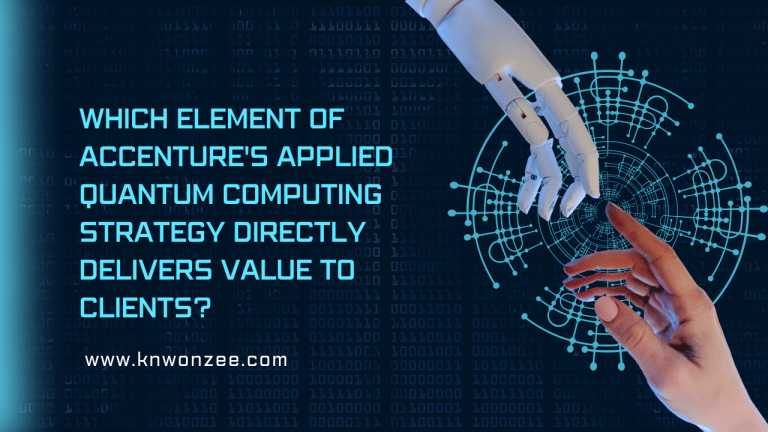How is a Qubit in Quantum Computing Different from a Regular Bit in Classical Computing?

In our digital age, the boundaries of possibility are continually expanding. The heart of this journey lies in understanding the difference between quantum bits, or qubits, and the classical bits we’re familiar with. Let’s dive deep into the topic how is a qubit in quantum computing different from a regular bit in classical computing?.
What is the Fundamental Difference Between Qubits and Classical Bits?
At its core, a classical bit in our digital binary system represents either a 0 or a 1. Its behavior is rooted in classical information theory. However, the qubit shatters this simple binary. Thanks to the principle of quantum superposition, a qubit can be in a state of 0, 1, or both simultaneously!
How Does Quantum Superposition Make Qubits Different from Classical Bits?

In classical computing basics, bits are like light switches, either ON or OFF. Contrast this with qubits, which can be in a blurred state of both, similar to a dimmer switch. This quantum parallelism means quantum computers can process vast amounts of data concurrently, something classical computers can’t match.
Explain the Concept of Quantum Entanglement and its Role in Qubits.
Quantum entanglement is another unique qubit characteristic. When qubits become entangled, the state of one instantly influences the other, no matter the distance separating them. This deep connection makes quantum computing radically different and potentially more powerful than classical computing.
Quantum Gates vs Classical Gates in Computing
While classical logic gates manipulate bits using familiar operations (like AND, OR, NOT), quantum gates handle qubits in ways that leverage their superposition and entanglement, ushering in revolutionary quantum information processing techniques.
What Advantages Do Qubits Offer Over Classical Bits in Computing?
Apart from superposition and entanglement, qubits excel in quantum annealing and specific quantum algorithms. They solve complex problems like prime factorization exponentially faster than classical counterparts, paving the way for breakthroughs in cryptography and optimization.
Classical Transistor vs. Qubit Behavior
The classical transistor, fundamental to traditional computing, is a gatekeeper, allowing or halting electron flow. However, qubits, often made using atoms or ions, behave differently due to quantum coherence and superposition, ensuring a more versatile approach to computing.
How Do Quantum Computers Perform Calculations Faster than Classical Computers?
The power of quantum parallelism is awe-inspiring. Quantum computers can evaluate multiple solutions simultaneously. Coupled with quantum entanglement, they ensure ultra-efficient problem-solving capabilities, making them a marvel in computational complexity.
Bit Representation in Classical Computers vs. Quantum Computers
In a classical computer, bits are represented typically by voltage levels within transistors. A high voltage might represent a ‘1’ and a low voltage a ‘0’. But in the realm of quantum, qubits can be represented in multiple ways – from the spin of an electron in a magnetic field to the polarization orientation of a photon. This variety in representation forms the bedrock for quantum information storage which dwarfs classical data storage capacities.
Quantum Algorithms vs. Classical Computational Complexity
Quantum algorithms are procedures to process information using quantum mechanics. Shor’s algorithm, for instance, is renowned for its potential to factor large numbers exponentially faster than classical algorithms. Classical computational complexity often categorizes problems into ‘easy’ and ‘hard’ based on the time taken for solution finding. Quantum algorithms, with their unique properties, have the potential to reclassify some of these ‘hard’ problems into the ‘easy’ bracket.
The Role of Quantum Annealing in Problem Solving
Quantum annealing is a technique that harnesses quantum properties to find the global minimum for complex problems. In essence, it’s a process of searching the best possible solution out of a set of solutions. Compared to classical methods, quantum annealing speeds up this search remarkably, especially beneficial for optimization problems.
Classical Boolean Logic vs. Quantum Logic
While classical boolean logic relies on definitive states (true or false, 1 or 0), quantum logic operates in a continuum of probabilities. Quantum logic gates apply transformations to qubit states, creating a different approach to computing logic that has no classical counterpart.
The Limitations of Classical Computing
Classical computing limitations are becoming increasingly evident. For problems involving vast data sets or requiring immense computational power – like accurate weather forecasting, drug discovery, or AI learning – classical computers fall short. They are bound by their binary nature, and as transistors shrink further, quantum effects unintentionally come into play, causing errors.
Decoherence and Quantum Error Correction
A notable challenge in quantum computing is decoherence, where qubits lose their quantum state. This fragility is because qubits are influenced by their environment. However, scientists are developing quantum error correction techniques. By encoding a single qubit of information across several physical qubits, errors can be detected and corrected, ensuring reliable quantum computation.
Future Prospects: Quantum Computing’s Bright Horizon
Quantum computing’s potential is staggering. From revolutionizing drug discovery to optimizing global logistics, the applications seem boundless. But the road ahead isn’t without challenges. As we develop more advanced quantum error correction techniques and scalable quantum systems, we inch closer to a future where quantum computers could work alongside classical machines, each playing to their strengths.
FAQs: Your Quantum Curiosities Addressed
Are there any limitations to using classical bits compared to qubits?
Yes. Classical bits lack the simultaneous data processing ability that qubits’ superposition offers.
What implications do qubits have for cryptography and data security?
Quantum computers can potentially break classical encryption techniques. However, they also pave the way for ultra-secure quantum encryption methods.
How does the behavior of qubits during measurement differ from classical bits?
Measurement in the quantum world is more complex. A qubit, when measured, “collapses” to either a 0 or 1, losing its superposition.
Explain the concept of decoherence and how it affects qubits in quantum computing?
Decoherence refers to qubits losing their quantum properties due to external disturbances. It’s a challenge, but researchers are working on effective quantum error correction techniques.
Can you provide examples of problems that can be solved using quantum parallelism?
Prime factorization, optimization problems, and certain complex simulations are areas where quantum parallelism shines.
Also Read: What is Applied Quantum Computing?
Conclusion
Quantum computing, with its fascinating qubits, promises to redefine our technological future. While classical computing has its merits, the quantum realm offers possibilities previously deemed unreachable. Embrace the quantum age, for it promises a future teeming with boundless potential!
Concluding our analysis of “How is a Qubit in Quantum Computing Different from a Regular Bit in Classical Computing?” we hope that this article has acted as a definitive resource, providing you with clarity and enabling you to make well-informed choices.






